Green peel – qing pi,qing pi tcm,qing pi herb,Green Orange Peel,Green Peel (with: orange leaves, orange seeds)
[Medicinal Use] The young fruit of Citrus reticulatn Blanco, a small tree of the Yunnan family, and its cultivated varieties.
[Nature and flavor and meridians] Bitter, pungent, warm. Enter the liver, gallbladder, and stomach meridians.
[Effects] Soothe the liver and break qi, eliminate stagnation and resolve stagnation.
[Clinical Application] 1. Used for rib pain, breast pain or lumps, hernia pain, etc.
Green Peel is pungent and warm in nature and flavor, can enter the liver and gallbladder, has strong qi-moving power, is good at soothing the liver and breaking qi, and is suitable for various liver qi stagnation symptoms. It is used to treat rib pain and is often used with Bupleurum, Curcuma, and Citrus Aurantium; breast pain or lumps are often used with Bupleurum, Cyperus, and Green Orange Leaves; if liver depression turns into heat and develops into mastitis, it should be used in combination with Trichosanthes, Taraxacum, Honeysuckle, etc.; for hernia pain, it is often used in combination with Linderae, Fennel, and Aucklandia.
2. Used for food stagnation and abdominal distension.
Qingpi can eliminate stagnation, so it can be used for food stagnation and qi stagnation. It is often used with Liuqu, malt, hawthorn and other stomach-strengthening, digestive and stagnation-removing products.
[Prescription name] Qingpi, small Qingpi, fine Qingpi, fried Qingpi, moxibustion Qingpi (fried with bran)
[General dosage and usage] One to three qian, decocted.
[Attached medicine] 1. Orange leaf: the leaves of the orange tree. It is pungent, bitter and flat in nature. It can soothe the liver and regulate qi, reduce swelling and disperse knots. It is suitable for rib pain, breast pain or lumps. The general dosage is one to three qian, decocted.
2. Orange core: the seeds of orange. It is bitter, pungent, warm in nature and enters the liver meridian. It can soothe the liver and regulate qi, disperse knots and relieve pain. It is suitable for hernia pain, testicular pain and other symptoms. The general dosage is one to three qian, decocted.
【Comments】1. Qingpi is bitter, pungent and warm, can enter the liver and stomach, sink downward, its nature is slow and urgent, it can relieve liver qi and break qi, can relieve sciatica, breast abscess, lower abdominal hernia pain; it can disperse accumulation and resolve stagnation, can eliminate food stagnation, abdominal distension and pain.
2. Tangerine peel and Qingpi are the same thing, but their effects are different due to age. Tangerine peel is a mature fruit peel, enters the spleen and lung meridians, has a gentle nature and is mainly ascending and floating, is good at regulating spleen and lung qi stagnation, drying dampness and resolving phlegm, and can strengthen the spleen; Qingpi is an immature fruit, enters the liver and stomach meridians, has a sharp nature and sinks, is good at relieving qi stagnation in the liver meridian, and can disperse food stagnation. However, liver qi disease often affects the spleen and stomach. If the liver and spleen are both sick or the liver and stomach are not harmonious, the two medicines are often used together.
【Literature Excerpt】《Zhenzhu Nang》: “It is used to treat qi stagnation, break up the knot, and is a medicine for the yang meridian. Chenpi treats high, Qingpi treats low.”
《Ben Cao Hui Yan》: “It is a medicine for breaking up stagnant qi and eliminating hard masses. All diseases with depression, anger, and stabbing pain in the ribs, or hernia and lower abdomen, are caused by liver qi disharmony; or warm malaria, stuffiness, and unclear cold and heat, or severe diarrhea and abdominal distension, or children with food malnutrition and various accumulations, and a big belly and thin limbs, are caused by spleen qi disharmony. This medicine is bitter and can be discharged, pungent and can disperse, and the fragrance can ward off evil spirits and eliminate miasma, and circulate water and grain, which is truly a special function.”
This product is the dried young fruit or immature fruit peel of the Rutaceae plant Citrus reticulata Blanco and its cultivated varieties. In May and June, the young fruits that fall by themselves are collected and dried in the sun, which is commonly known as “geqingpi”; in July and August, the immature fruits are harvested, and the peel is cut into four lobes longitudinally to the base, and the pulp lobes are removed and dried in the sun, which is commonly known as “sihuaqingpi”
[ਵਿਸ਼ੇਸ਼ਤਾਵਾਂ]
The peel of the four-flowered green peel is cut into 4 lobes, which are oblong, 4~6cm long, and 0.1~0.2cm thick. The outer surface is gray-green or black-green, with many dense oil chambers; the inner surface is off-white or yellow-white, rough, with yellow-white or yellow-brown small veins. The texture is slightly hard and easy to break, and there are 1~2 rows of oil chambers on the outer edge of the cross section. It has a fragrant smell and tastes bitter and spicy.
Geqingpi is spherical, with a diameter of 0.5~2cm. The surface is gray-green or black-green, slightly rough, with fine and concave oil chambers, a slightly protruding column base at the top, and a round fruit stalk mark at the base. The fruit is hard, with yellow-white or light yellow-brown peel in cross section, 0.1~0.2cm thick, and 1~2 rows of oil chambers on the outer edge. The pulp capsule has 8~10 petals, light brown. It has a light fragrance and tastes sour, bitter and pungent.
[ਪਛਾਣ]
(1) Four-flowered green peel This product is pink gray-green or light gray-brown. The mesocarp has numerous thin-walled tissues, with irregular cell shapes and slightly thickened walls, some of which are in the shape of beads. The surface view of the epidermal cells of the fruit is polygonal or quasi-square, with thickened anticlimax walls, oblong stomata, 20~28um in diameter, and 5~7 accessory cells; the outer cuticle is observed from the side, and the radial wall close to the outside is slightly thickened. Calcium oxalate prismatic crystals exist in the thin-walled cells near the epidermis, and are polyhedral, wilted or square, with a diameter of 3~28um and a length of up to 32um. The orange peel crystals are brown-yellow, semicircular, quasi-circular or amorphous masses. The spiral vessels and reticular vessels are small. The epidermal cells of the green peel cysts are narrow and thin-walled, and some are wavy. The cells contain calcium oxalate crystals and hesperidin crystals.
(2) Take 0.3g of the powder of this product, add 10ml of methanol, heat and reflux for 20 minutes, filter, take 5ml of the filtrate, concentrate to 1m!, as the test solution. Take another hesperidin reference substance, add methanol to make a saturated solution, as the reference solution. According to the thin layer chromatography method (General Rule 0502), take 2u! of each of the above two solutions and spot them on the same tridacna G thin layer plate prepared with 0.5% sodium hydroxide solution, use ethyl acetate-methanol-water (100:17:13) as the developing solvent, expand to about 3cm, take out, dry, and then use the upper layer solution of toluene-ethyl acetate-formic acid-water (20:10:1:1) as the developing solvent, expand to about 8cm, take out, dry, spray with aluminum chloride test solution, and examine under ultraviolet light (365nm). In the chromatogram of the test sample, a fluorescent spot of the same color appears at the corresponding position of the chromatogram of the reference sample.
[ਜਾਂਚ]
The water content shall not exceed 13.0% (General Rule 0832 Method 4).
Total ash content shall not exceed 6.0% (General Rule 2302)
[ਸਮੱਗਰੀ ਨਿਰਧਾਰਨ]
Determine according to the high performance liquid chromatography method (General Rule 0512).
Colorimetric conditions and system suitability test Use octadecyl alkane bonded tridacnamate as filler; methanol-water (25:75) as mobile phase; detection wavelength is 284nm. The number of theoretical plates calculated based on the hesperidin peak should not be less than 1000.
Preparation of reference solution Take an appropriate amount of hesperidin reference sample, accurately weigh it, and add methanol to make a solution containing 0.1mg per 1ml. Preparation of test solution Take about 0.2g of fine powder of this product, weigh accurately, put it in a 50ml volumetric flask, add 30ml of methanol, ultrasonically treat for 30 minutes, cool, add methanol to the scale, shake well, filter, accurately measure 2ml of the filtrate, put it in a 5ml volumetric flask, add methanol to the scale, shake, and get it.
Determination method Accurately aspirate 10ml of reference solution and test solution respectively, inject into liquid chromatograph, and determine.
This product contains hesperidin (C28H34015) of not less than 5.0%.
ਡੀਕੋਸ਼ਨ ਟੁਕੜਾ
[ਪ੍ਰਕਿਰਿਆ]
Qingpi Remove impurities, wash, steam, cut into thick slices or shreds, and dry in the sun.
[ਵਿਸ਼ੇਸ਼ਤਾਵਾਂ]
This product is in the form of round thick slices or irregular filaments. The surface is gray-green or black-green, with many oil chambers densely grown, the cut surface is yellow-white or light yellow-brown, and sometimes 8-10 petals of the pulp capsule can be seen, which is light brown. It has a fragrant smell and tastes bitter and spicy.
[ਜਾਂਚ]
Water content: Same as medicinal materials, not more than 11.0%.
[ਸਮੱਗਰੀ ਨਿਰਧਾਰਨ]
Same as medicinal materials, containing hesperidin (C28H34015) not less than 4.0%.
[ਪਛਾਣ] [ਨਿਰੀਖਣ]
(Total ash content) Same as medicinal materials.
Vinegar green peel Take green peel slices or silk, stir-fry according to the vinegar roasting method (General Rule 0213) until slightly yellow,
For every 100kg of green peel, use 15kg of vinegar.
[ਵਿਸ਼ੇਸ਼ਤਾਵਾਂ]
This product is shaped like green peel slices or silk, with a darker color, a slight vinegar aroma, and a bitter and pungent taste.
[ਜਾਂਚ]
Water content: Same as medicinal materials, not more than 11.0%.
[ਸਮੱਗਰੀ ਨਿਰਧਾਰਨ]
Same as medicinal materials, containing hesperidin (C28H34015) not less than 3.0%
[ਪਛਾਣ] [ਨਿਰੀਖਣ]
(Total ash content) Same as medicinal materials.
[Nature and flavor and meridians] Bitter, pungent, warm. Enters the liver, gallbladder, and stomach meridians. 【Function and Indications】
Soothes the liver and breaks qi, eliminates stagnation and resolves stagnation. Used for chest and flank pain, hernia pain, breast lumps, breast abscesses, food stagnation and qi stagnation, abdominal pain.
【ਵਰਤੋਂ ਅਤੇ ਖੁਰਾਕ】
3~10g.
【ਸਟੋਰੇਜ】
Place in a cool and dry place.
Where is the main origin of green peel?
It is mainly produced in Fujian and Zhejiang.
Where is the main medicinal part of green peel?
Medicinal part of green peel:
This product is the dried young fruit or immature fruit peel of the Rutaceae plant Citrus reticulata Blanco and its cultivated varieties. Collect the young fruits that fall from the sky in May and June, dry them in the sun, and they are commonly called “individual green peel”: harvest the immature fruits in July and August, cut them into four petals on the peel to the base, remove the pulp petals, and dry them in the sun, which is commonly called “four-flower green peel”.
Characteristics of the medicinal part of Qingpi:
The peel of the four-flowered Qingpi fruit is cut into 4 lobes, which are oblong, 4~6cm long and 0.1~0.2cm thick. The outer surface is gray-green or black-green, with many dense oil chambers; the inner surface is off-white or yellow-white, rough, with yellow-white or yellow-brown small veins.
It is slightly hard and easy to break, with 1~2 rows of oil chambers on the outer edge of the cross section. It has a fragrant smell and tastes bitter and spicy. The Qingpi is spherical, with a diameter of 0.5~2cm.
The surface is gray-green or black-green, slightly rough, with fine and concave oil chambers, a slightly protruding column base at the top, and a round fruit stalk mark at the base. It is hard, the cross-section peel is yellow-white or light yellow-brown, 0.1~0.2cm thick, and there are 1~2 rows of oil chambers on the outer edge. The pulp capsule has 8~10 petals, light brown. The smell is fresh and fragrant, and the taste is sour, bitter and pungent.
How is Qingpi recorded in ancient books?
“Compendium of Materia Medica”: “It is used to treat qi stagnation, relieve food, break up stagnation and diaphragmatic qi.
“Zhenzhu Nang”: “Qingpi is used to treat qi stagnation, break up stagnation and is also a medicine for the Shaoyang meridian.
“Compendium of Materia Medica”: “Qingpi is the most severe, and its strengths are to dissipate hardness and break up stagnation. However, if taken by mistake, it will damage people’s true qi and cause great harm.
ਪ੍ਰਭਾਵ
Qingpi has the effects of soothing the liver and breaking up qi, and eliminating stagnation.
What are the main effects and clinical applications of Qingpi?
Qingpi is used for chest and flank distension and pain, hernia pain, breast lumps, breast abscesses, food accumulation and qi stagnation, and abdominal distension and pain.
Syndrome of liver depression and qi stagnation
·Treat liver depression and qi stagnation, chest For flank pain, it is often used with Bupleurum, Curcuma, Cyperus, etc.
· For breast pain or lumps, it is often used with Bupleurum, Fritillaria, Citrus aurantium, etc.
For mastitis, it is often used with Trichosanthes, Honeysuckle, Taraxacum, etc. .
· For hernia pain, it is often used with Linderae, Fennel, Aucklandia, etc.
Food stagnation and qi stagnation
· For food stagnation and qi stagnation, abdominal pain, it is often used with Hawthorn, Shenqu, Malt, etc.
·For severe abdominal distension and pain caused by qi stagnation, it can be used together with Zhishi, Dahuang, and Areca.
In addition, it can be used with Trillium, Curcuma, etc. to treat accumulation of qi stagnation and blood stasis, and long-term malaria.
What other effects does Qingpi have?
In my country’s traditional food culture, some Chinese medicinal materials are often widely consumed as food ingredients by the people, that is, substances that are both food and Chinese medicinal materials according to tradition (i.e. edible medicinal substances). According to the documents issued by the National Health Commission and the State Administration for Market Regulation, Qingpi can be used as both medicine and food within a limited range of use and dosage.
Commonly used medicinal diet recipes for Qingpi are as follows:
· For cervical lymph tuberculosis: 18g each of kelp and Prunella vulgaris, 15g of seaweed, 9g each of Qingpi and white mustard. Decoction. · For hernia pain: 15g each of Qingpi and fennel. Boil dry with 1 bowl of rice vinegar, add water 2 bowls, decoct for 8 minutes, take gently. For cervical lymph node tuberculosis: kelp, Prunella vulgaris 18g each, seaweed 15g, green peel, white seed 9g each. Decoction in water
ਨੋਟ: ਚੀਨੀ ਚਿਕਿਤਸਕ ਸਮੱਗਰੀ ਦੀ ਵਰਤੋਂ ਸਿੰਡਰੋਮ ਵਿਭਿੰਨਤਾ ਅਤੇ ਇਲਾਜ 'ਤੇ ਅਧਾਰਤ ਹੋਣੀ ਚਾਹੀਦੀ ਹੈ, ਅਤੇ ਪੇਸ਼ੇਵਰ ਚੀਨੀ ਦਵਾਈ ਪ੍ਰੈਕਟੀਸ਼ਨਰਾਂ ਦੀ ਅਗਵਾਈ ਹੇਠ ਵਰਤੀ ਜਾਣੀ ਚਾਹੀਦੀ ਹੈ। ਉਨ੍ਹਾਂ ਦੀ ਮਰਜ਼ੀ ਨਾਲ ਵਰਤੋਂ ਨਾ ਕਰੋ, ਅਤੇ ਚੀਨੀ ਦਵਾਈਆਂ ਦੇ ਨੁਸਖੇ ਅਤੇ ਇਸ਼ਤਿਹਾਰਾਂ ਨੂੰ ਆਪਣੀ ਮਰਜ਼ੀ ਨਾਲ ਨਾ ਸੁਣੋ।
What are the compound preparations containing green peel?
Tiantai Wuyao Powder
Promote qi and soothe the liver, dispel cold and relieve pain. Indications: Liver meridian cold stagnation and qi stagnation syndrome. Small intestinal hernia, lower abdomen leads to testicular pain, partial swelling, or lower abdominal pain, white fur, stringy pulse.
Muxiang Shunqi Pills
Promote qi and eliminate dampness, strengthen the spleen and stomach. Used for chest tightness, abdominal distension and pain, vomiting and nausea, belching and poor appetite caused by dampness and turbidity blocking the middle, and disharmony between the spleen and stomach.
Jiawei Zuojin Pills
Pacify the liver and reduce adverse reactions, soothe depression and relieve pain. Used for liver depression and fire, liver and stomach disharmony Chest and abdominal distension, irritability, belching and acid regurgitation, stomachache and loss of appetite. Jinsang Liyan Pills
Soothe the liver and regulate qi, resolve phlegm and relieve sore throat. It is used for foreign body sensation in the throat, discomfort in the throat, hoarseness caused by phlegm and dampness, liver depression and qi stagnation; vocal cord hypertrophy with the above symptoms.
Runing Granules
Soothe the liver and nourish blood, regulate qi and relieve depression. It is used for breast lumps caused by liver qi stagnation, symptoms include premenstrual breast pain, distension and pain in the flanks, breast nodules, and aggravated premenstrual pain; breast hyperplasia with the above symptoms.
Modern research progress on Qingpi
Modern research shows that this product has multiple pharmacological effects such as regulating gastrointestinal motility, promoting secretion of digestive juices, protecting the liver, promoting gallbladder, protecting ischemic brain damage, raising blood pressure, removing phlegm and dilating bronchi, relieving asthma, relieving pain, and inhibiting uterine smooth muscle contraction.
ਵਰਤੋਂ
Qingpi is generally used as Qingpi decoction pieces and decocted.
How to use Qingpi correctly?
When Qingpi decoction is taken orally, the common dosage is 3~10g.
After different processing methods, it can produce Chinese medicinal materials such as Qingpi, vinegar Qingpi and bran fried Qingpi. After vinegar roasting, the liver-soothing and analgesic effect is enhanced. Different processing methods have different effects, but the method of use is the same. Please follow the doctor’s advice for specific medication.
Qingpi is generally used in decoctions, decoctions are taken, and powders or pills can also be made for use. However, the use of Chinese medicinal materials must be treated according to syndrome differentiation and should be used under the guidance of professional Chinese medicine practitioners. It should not be used at will, and it is even more important not to listen to Chinese medicine prescriptions and advertisements at will.
How to process Qingpi?
·Qingpi: Take the original medicinal material, remove impurities, wash, steam, cut into strips or thick slices, dry, and remove ash.
Vinegar Qingpi: Take clean Qingpi strips or slices, mix well with vinegar, steam thoroughly, put in a frying container, heat over low heat, fry until slightly yellow, take out and cool. Qingpi.
For every 100kg of shreds or slices, use 15kg of rice vinegar.
Fried Qingpi with bran: Sprinkle bran into the preheated frying container, heat over medium heat, and when it smokes, add clean Qingpi shreds or slices, stir-fry quickly until yellow, take out, sieve out the bran, and let it cool. For every 100kg of Qingpi shreds or slices, use 10kg of bran.
Which drugs should be used with Qingpi with special attention?
The combined use of Chinese medicine and the combined use of Chinese and Western medicine requires syndrome differentiation and clinical individualized treatment.
ਜੇਕਰ ਤੁਸੀਂ ਹੋਰ ਦਵਾਈਆਂ ਦੀ ਵਰਤੋਂ ਕਰ ਰਹੇ ਹੋ, ਤਾਂ ਕਿਰਪਾ ਕਰਕੇ ਦਵਾਈ ਲੈਣ ਤੋਂ ਪਹਿਲਾਂ ਇੱਕ ਡਾਕਟਰ ਨਾਲ ਸਲਾਹ ਕਰੋ, ਅਤੇ ਆਪਣੀਆਂ ਸਾਰੀਆਂ ਨਿਦਾਨ ਕੀਤੀਆਂ ਬਿਮਾਰੀਆਂ ਅਤੇ ਇਲਾਜ ਯੋਜਨਾਵਾਂ ਬਾਰੇ ਡਾਕਟਰ ਨੂੰ ਸੂਚਿਤ ਕਰੋ ਜੋ ਤੁਸੀਂ ਪ੍ਰਾਪਤ ਕਰ ਰਹੇ ਹੋ।
ਵਰਤਣ ਲਈ ਨਿਰਦੇਸ਼
Qingpi is pungent, dispersing, bitter and descending, and has a strong nature that consumes qi, so people with qi deficiency and body fluid damage should take it with caution.
What precautions should be taken when using Qingpi?
·This product has a strong nature that consumes qi, so people with qi deficiency should use it with caution.
·During the medication period, you should pay attention to avoid eating cold, raw and cold foods, spicy and greasy foods, and avoid smoking and drinking.
Green peel has a fragrant smell and a bitter and spicy taste. The best ones are black-green, uniform, hard and fragrant. The four-flower green peel has a fresh smell and tastes sour, bitter and spicy. The best ones are black-green.
Color, yellow-white inside and fragrant. Use it raw or roasted with vinegar.
· Pregnant and lactating women: If you are pregnant, planning to get pregnant or are lactating, please inform your doctor in time and consult whether Chinese medicine can be used for treatment.
· Children: Children should take medicine under the guidance of a doctor and adult supervision.
· Please keep the medicinal materials properly and do not give them to others.
ਦਵਾਈ ਬਣਾਉਣ ਲਈ ਤਾਂਬੇ ਜਾਂ ਲੋਹੇ ਦੇ ਭਾਂਡਿਆਂ ਦੀ ਵਰਤੋਂ ਕਰਨ ਤੋਂ ਪਰਹੇਜ਼ ਕਰੋ।
How to identify and use green peel?
Chenpi and green peel
· Both regulate the qi of the middle jiao and eliminate bloating. They are used for abdominal distension and pain caused by stagnation of qi in the spleen and stomach, and indigestion. ·However, tangerine peel is mild in nature and tends to enter the spleen and lungs. It focuses on regulating the qi of the spleen and lungs, and is especially good at regulating qi and regulating the middle. It is effective for abdominal distension, nausea, vomiting, and hiccups caused by dampness blocking qi stagnation. It is also good at drying dampness and resolving phlegm, and is an important medicine for treating damp phlegm and cold phlegm.
Citrus tangerine peel is strong in nature and tends to enter the liver and gallbladder. It tends to regulate the qi of the liver and gallbladder. It is good at soothing the liver and breaking qi, and can also eliminate stagnation. It is mainly used for breast pain or lumps caused by liver qi stagnation, rib pain, hernia pain, as well as food stagnation and abdominal pain, scar accumulation, etc.
Citrus tangerine peel and vinegar tangerine peel
·Citrus tangerine peel is generally used as a decoction piece and decocted. Through different processing methods, tangerine peel and vinegar tangerine peel can be produced.The Chinese medicinal materials such as fried green peel with bran and green peel are bitter and pungent in taste and warm in nature. It enters the liver, gallbladder and stomach meridians. It has the functions of soothing the liver, breaking qi, eliminating accumulation and removing stagnation. It is used for chest and flank pain, hernia pain, breast lumps, breast abscesses, food accumulation and qi stagnation, and abdominal pain. The raw product is strong in nature, and has a strong pungent and dispersing power to break qi. It has a sweating effect while soothing the liver, with the main function of breaking qi and removing accumulation. Vinegar green peel can lead the medicine into the liver, alleviate the pungent and strong nature, eliminate the sweating effect, so as not to damage the vital energy, and enhance the effects of soothing the liver, relieving pain, and removing accumulation and removing stagnation.
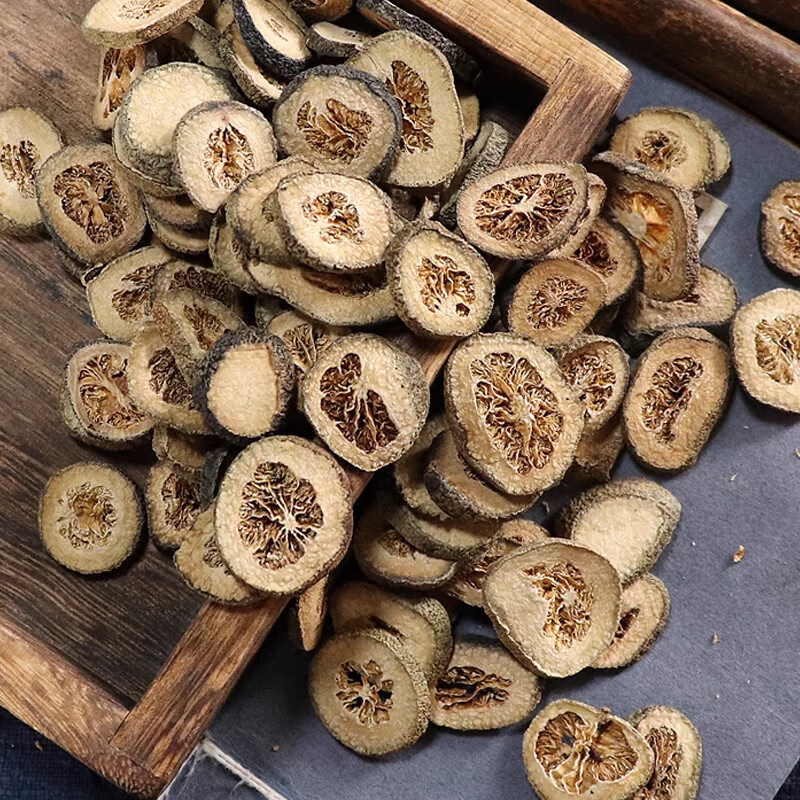
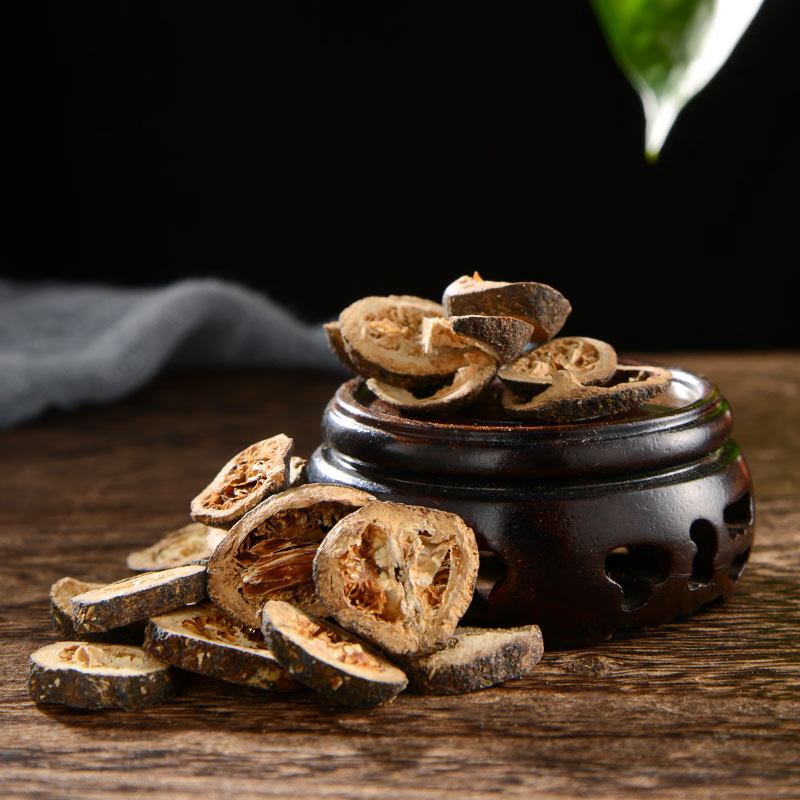
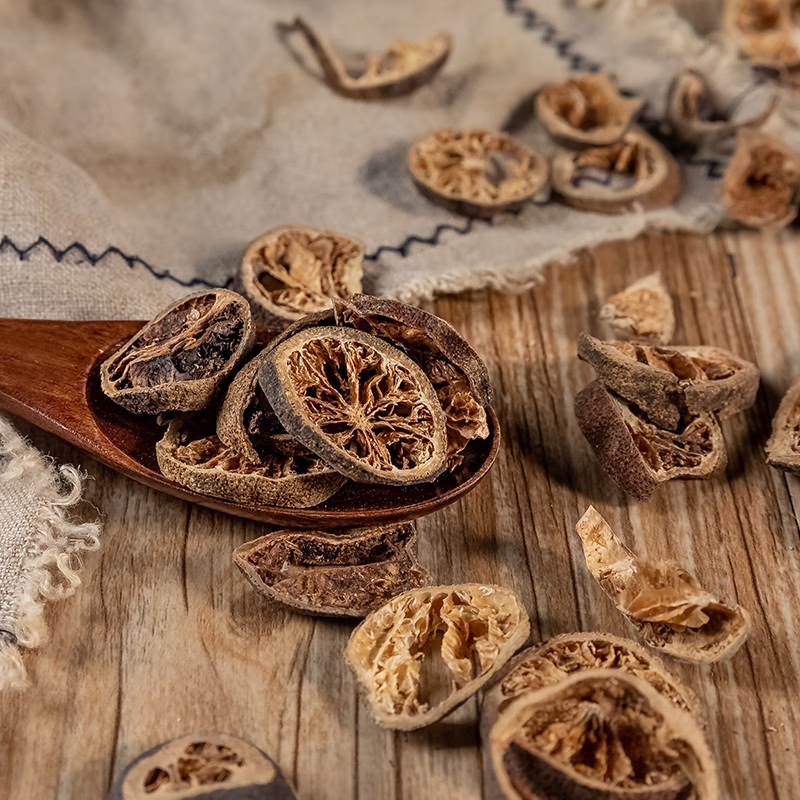
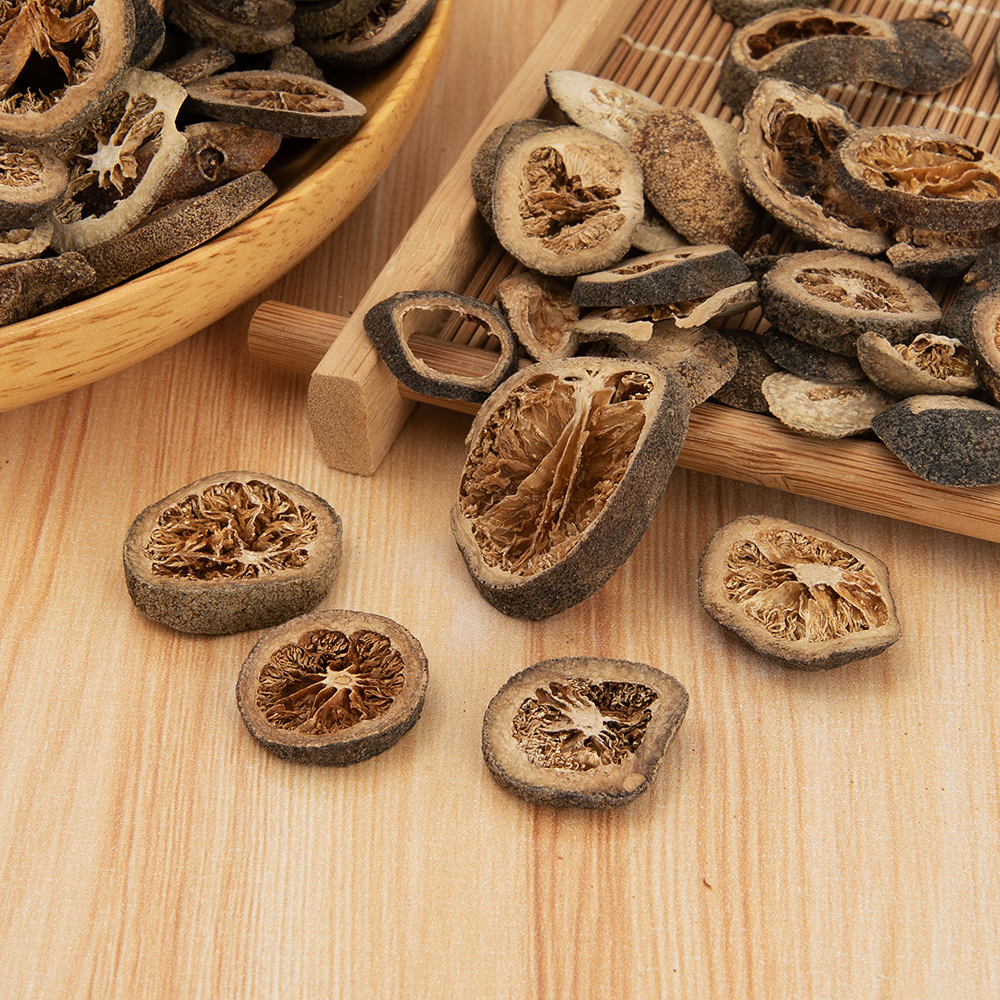
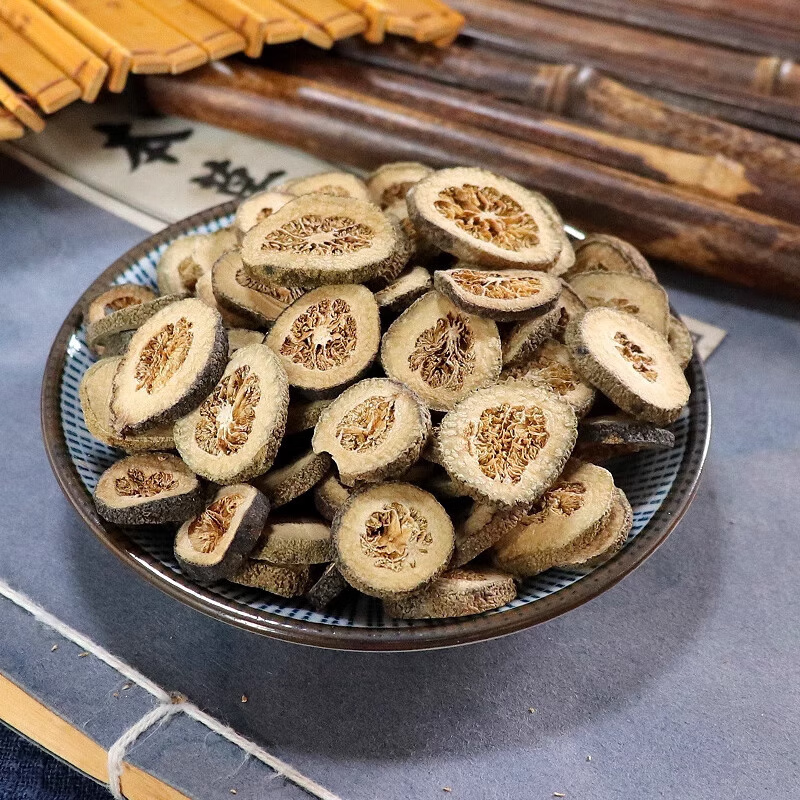
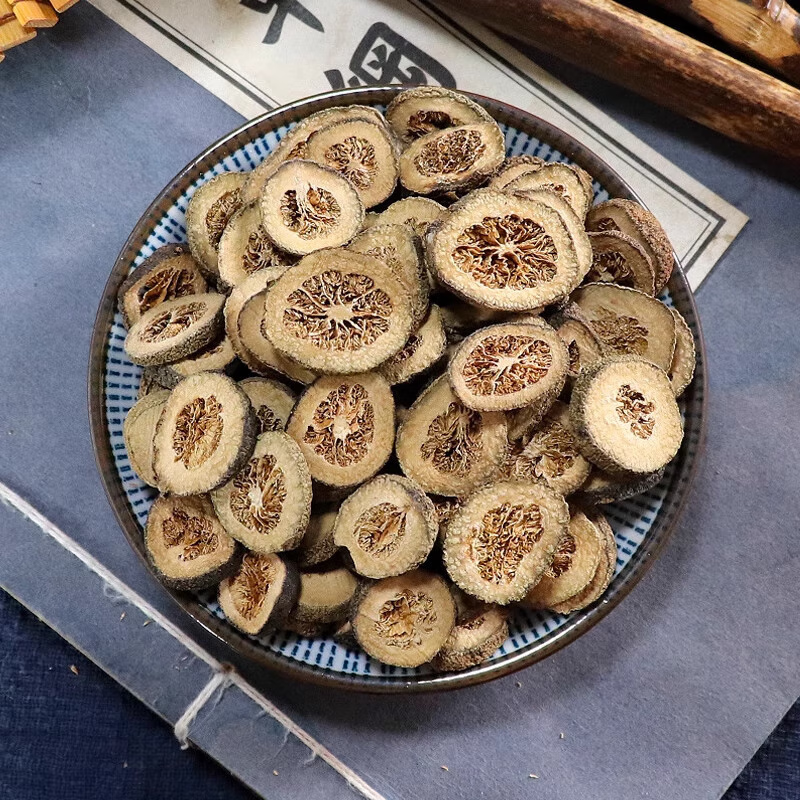
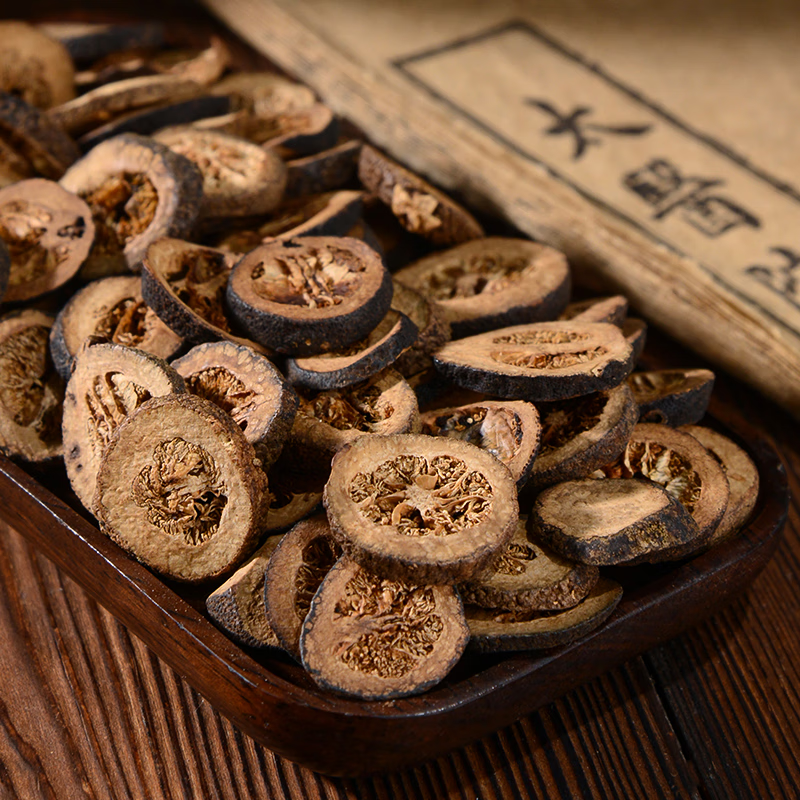
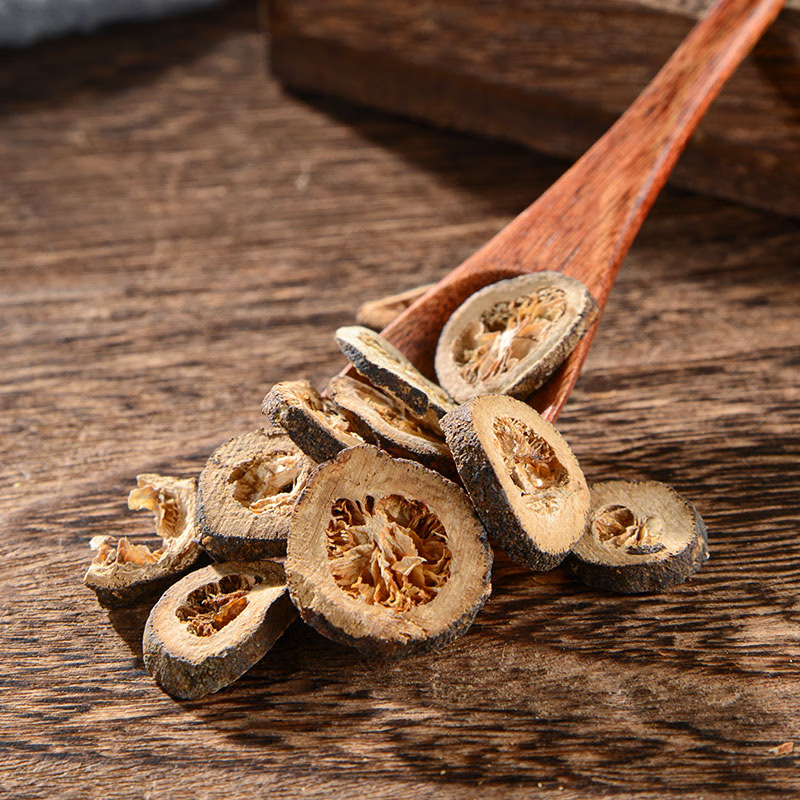

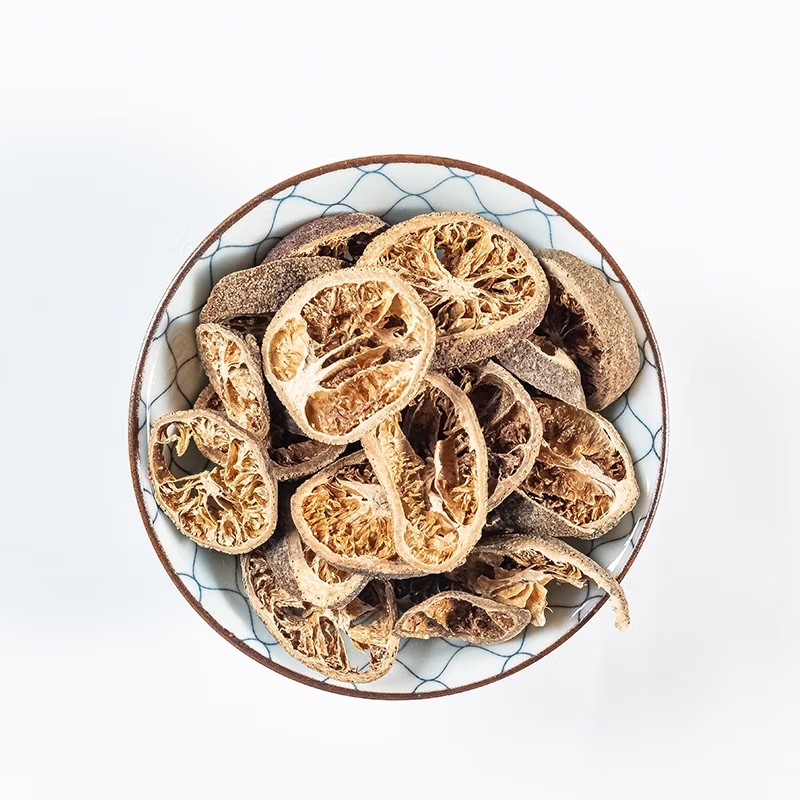

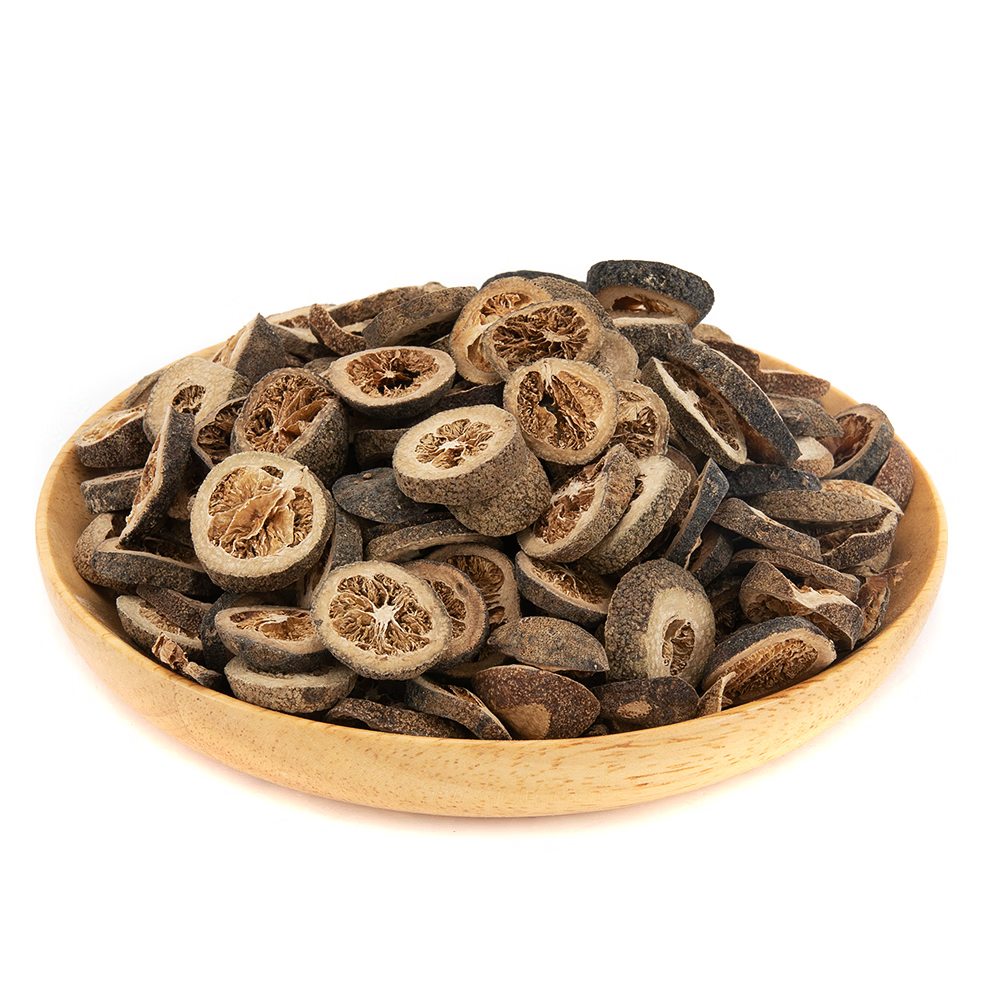

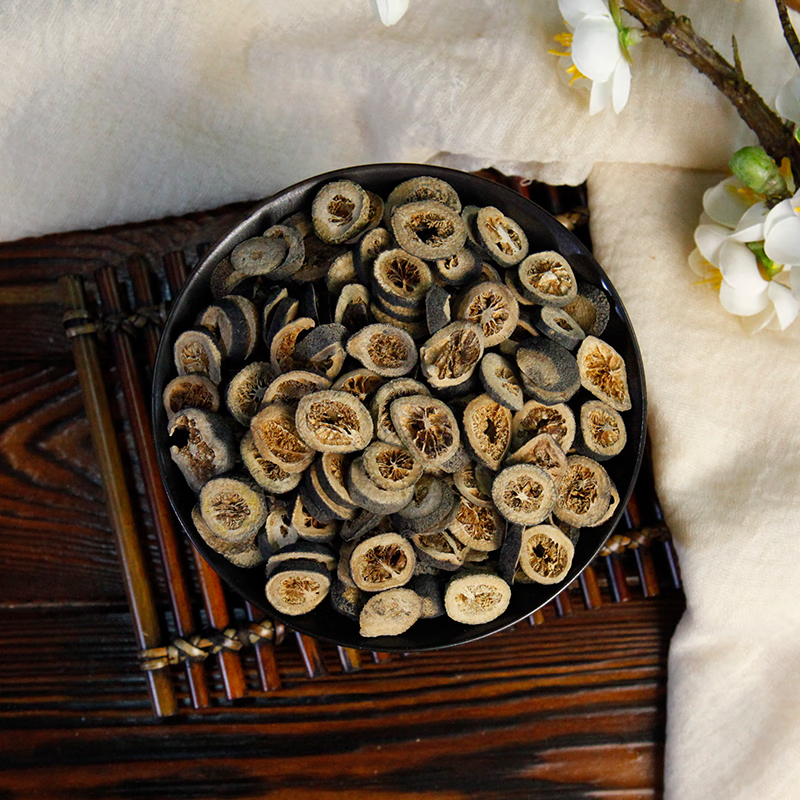
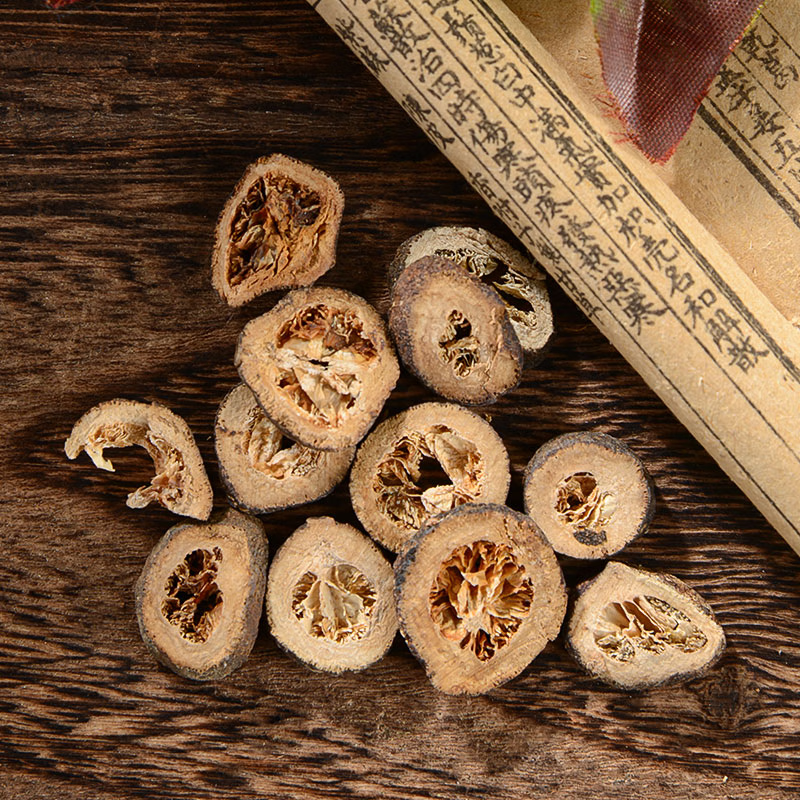
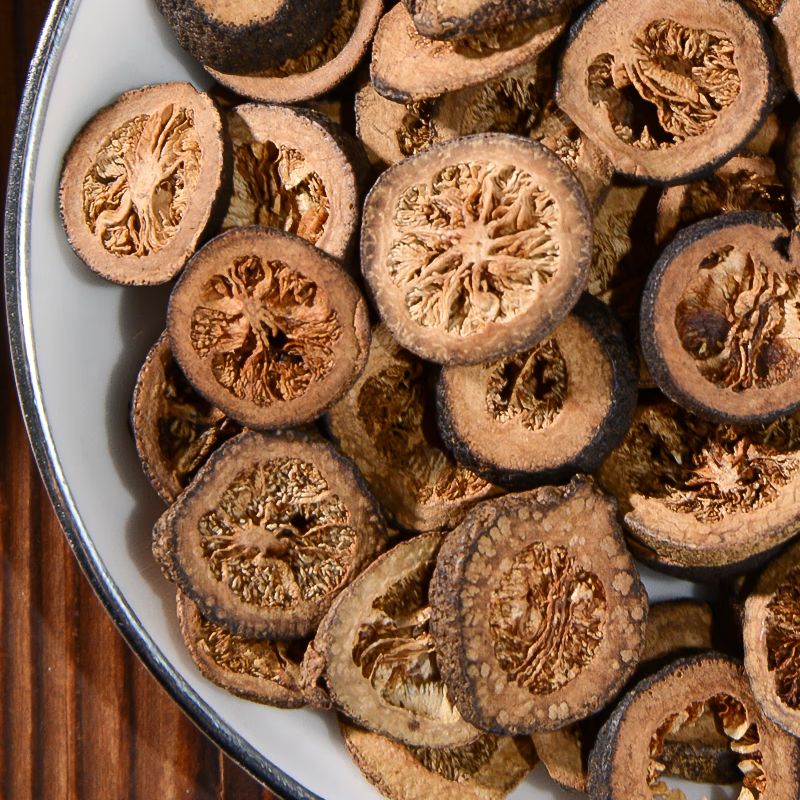
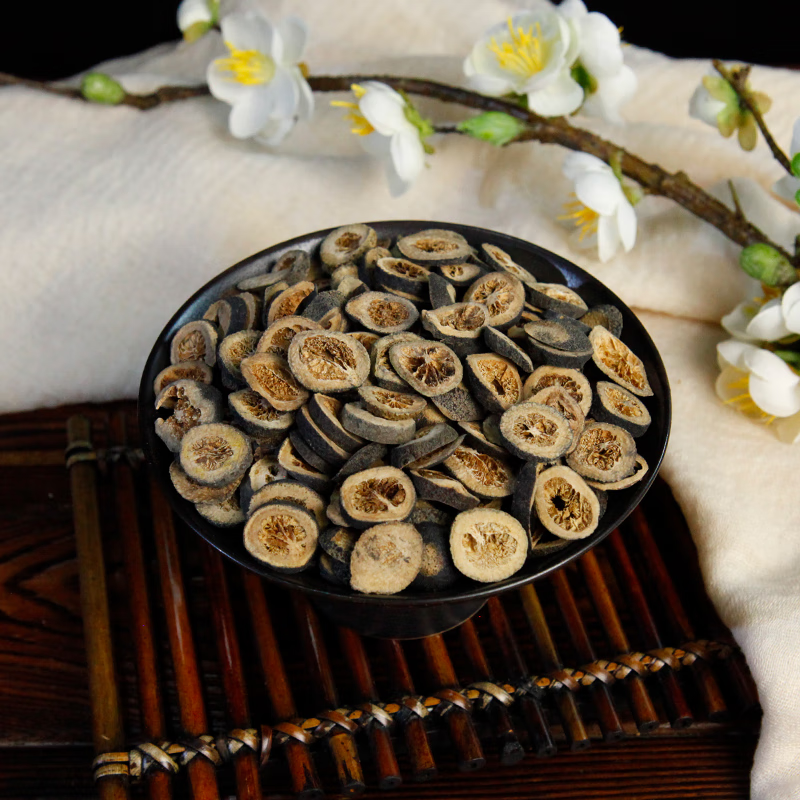
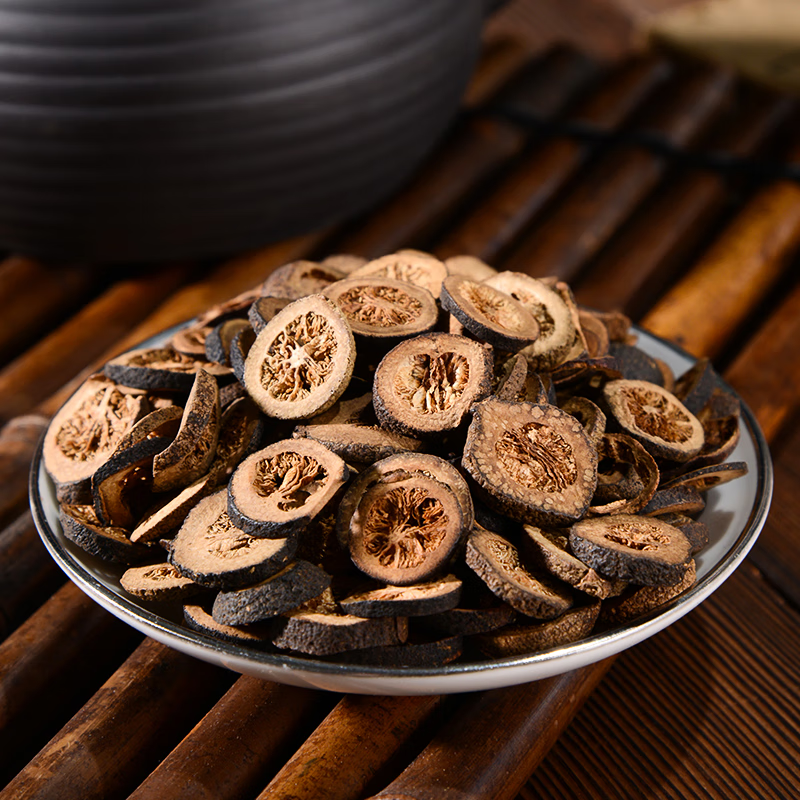
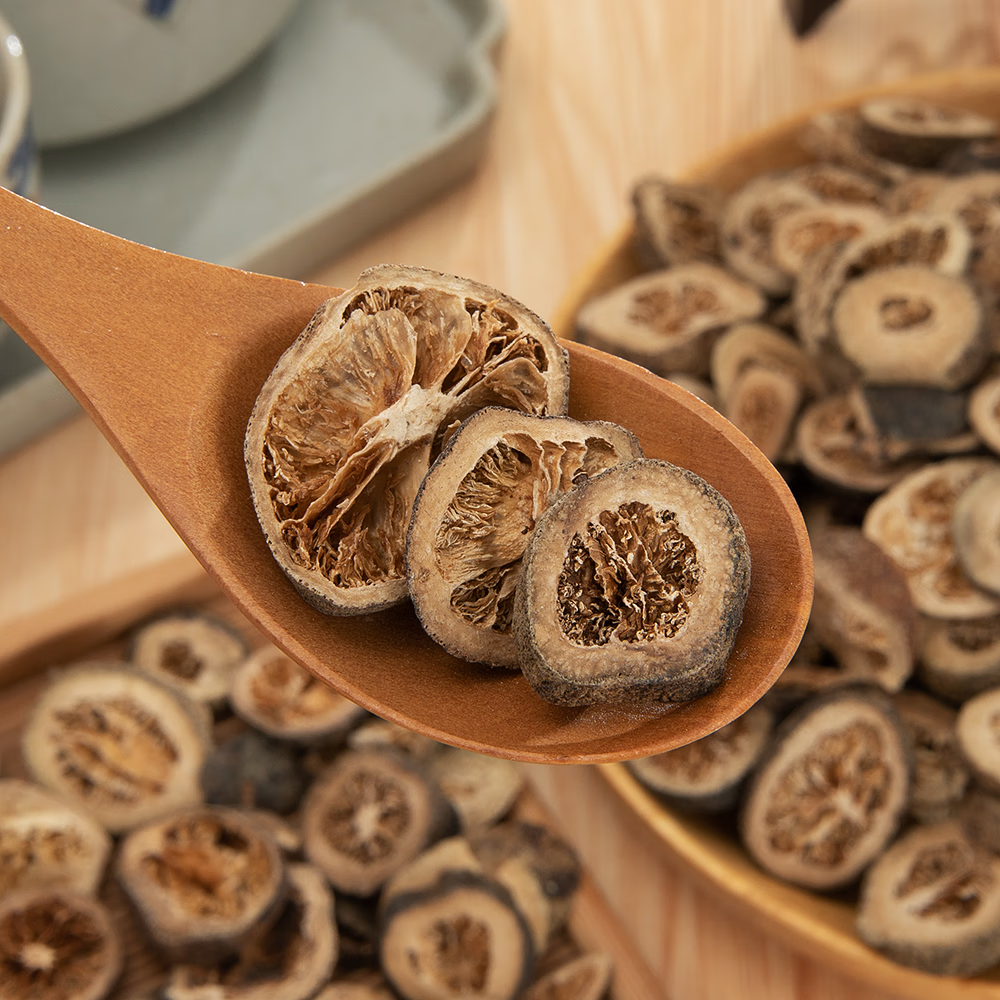
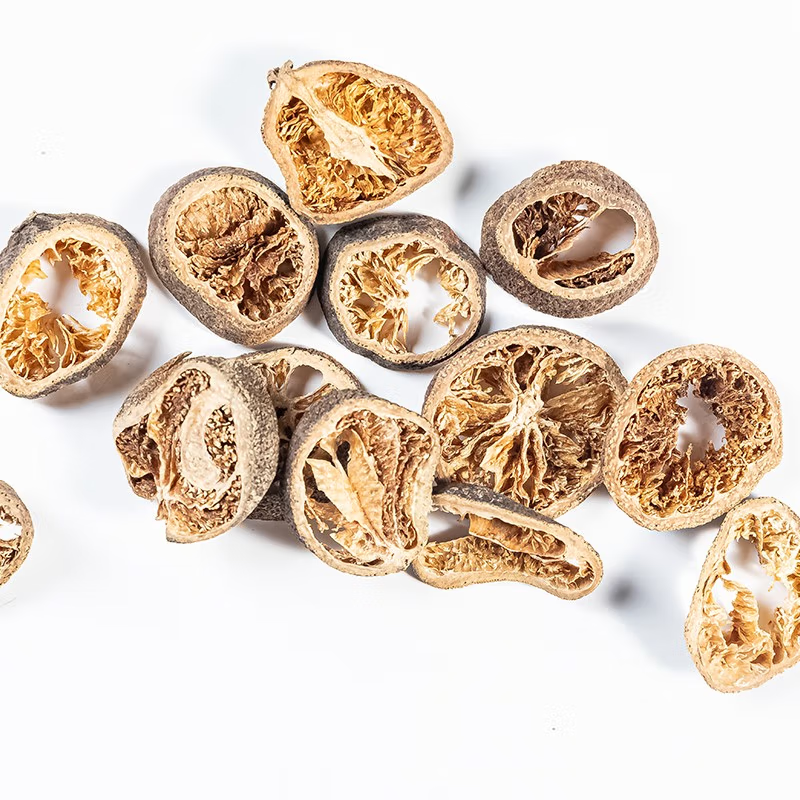

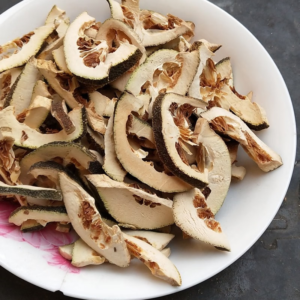
ਸਮੀਖਿਆਵਾਂ
ਅਜੇ ਤੱਕ ਕੋਈ ਸਮੀਖਿਆਵਾਂ ਨਹੀਂ ਹਨ।